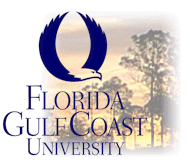Class Sessions
Video |Text Reading | Text Discussion Questions | Video Questions
|
Session
11:
Deep
Ecology, National
Socialism and
Revolutionary Ecology
Behind the Green Curtain (4 Parts)
We begin with the Finnish radical ecological philosopher and activist Pentti Linkola. Start by reading "The Thinking of Pentti Linkola" by David Orton. Also Read Pentti Linkola's 2005 published essays. "Human Nature and Animal Nature" (p. 72-74), "The Intolerable Misfortune of Technology" (p. 129-132), "The Human Nature and History" (p. 148-150); "That Bullet Knew its Place" (p. 164-167); "A View Into The State Of The World, Or The ABC Of The Deep Ecologist” (Chapter One & Two" p. 167-172); "The United States: The Enemy of the World" (p. 172-173); Ecological Ethics Chapter 8.
1. What is Deep Green Theory? 2. Why does Murray Bookchin rail against environmentalists who
advocate reverence for nature? 3. What does Benson have in mind regarding a “naturalistic”
approach to nature? 4. Curry asserts that all religions fall short of articulating a
meaningful ecological ethic. What is his rationale? 5. Curry advocates for a “post-secular” and “post-religious”
spirituality. What is this and what advantages does he believe this has
over traditional religious faith and spiritualism? 6. Tom Cheetham champions for the “resacralization” of nature.
What does this mean? 7. Delineate the four characteristics of the sacred that Curry
asserts can “make a positive and effective contribution to ecocentric
ethics.” 8. What is the term “ecological Indian” refer to? 9. Why does Curry question the debunking or dismissal of the
“ecological Indian?” 10. What is “monism” and why does Curry consider it to be an
impoverished concept? 11. How does monism differ from moral pluralism? 12. Hernnstein writes about “intellectual/political
totalitarianism.” What does this term mean? 13. Why is monism “anti-ecological?” Why does Curry assert that
“pluralism” is ecological? 14. What three ecological burdens that pluralism allegedly relives? Answer
8 of the video questions.
1.
Provide 3 instances from the film in which it would seem that
individual rights have been compromised by environmental laws and
policies. 2.
According to this film, what lies behind The Green Curtain. 3.
On what grounds (specifically) is private property purported to
be the foundation of all other rights. 4.
Why would one Cuban interviewee in the film associate
environmentalism with Communism? How about the former Soviet interviewee?
What was his experience when trying to build his truck repair
business? 5.
According to the film who writes environmental laws? 6.
The film asserts that regulatory bodies created Congress have
promulgated rules well beyond the intent of the laws Congress passed.
Provide an example of this from the film and explain. 7.
The film asserts that in the case of Pozgai that the
environmental agencies treated the Constitution as an antiquated document.
Do you agree or disagree? Please elucidate. 8.
What role does the Nature Conservancy appear to play in regard to
federal agencies such as the Land Management Agency and the Forestry
Service? 9.
What possible rationale would there be for nationalizing private
property? 10.
What proportion of the land in the U.S. is government
owned? 11.
What role do foundations play in influencing the nation’s
environmental agenda? 12.
In what way could organizations like The Nature Conservancy be
considered a “real estate agency”? 13.
What is perceived as being wrong with nationalizing private
land? 14.
Did the film point out instances where foundations or
organizations like the Sierra Club have found themselves in a conflict of
interest situation? Explain. 15.
How does the Rockefeller Fund play into the thesis of this film? |
Class Sessions
